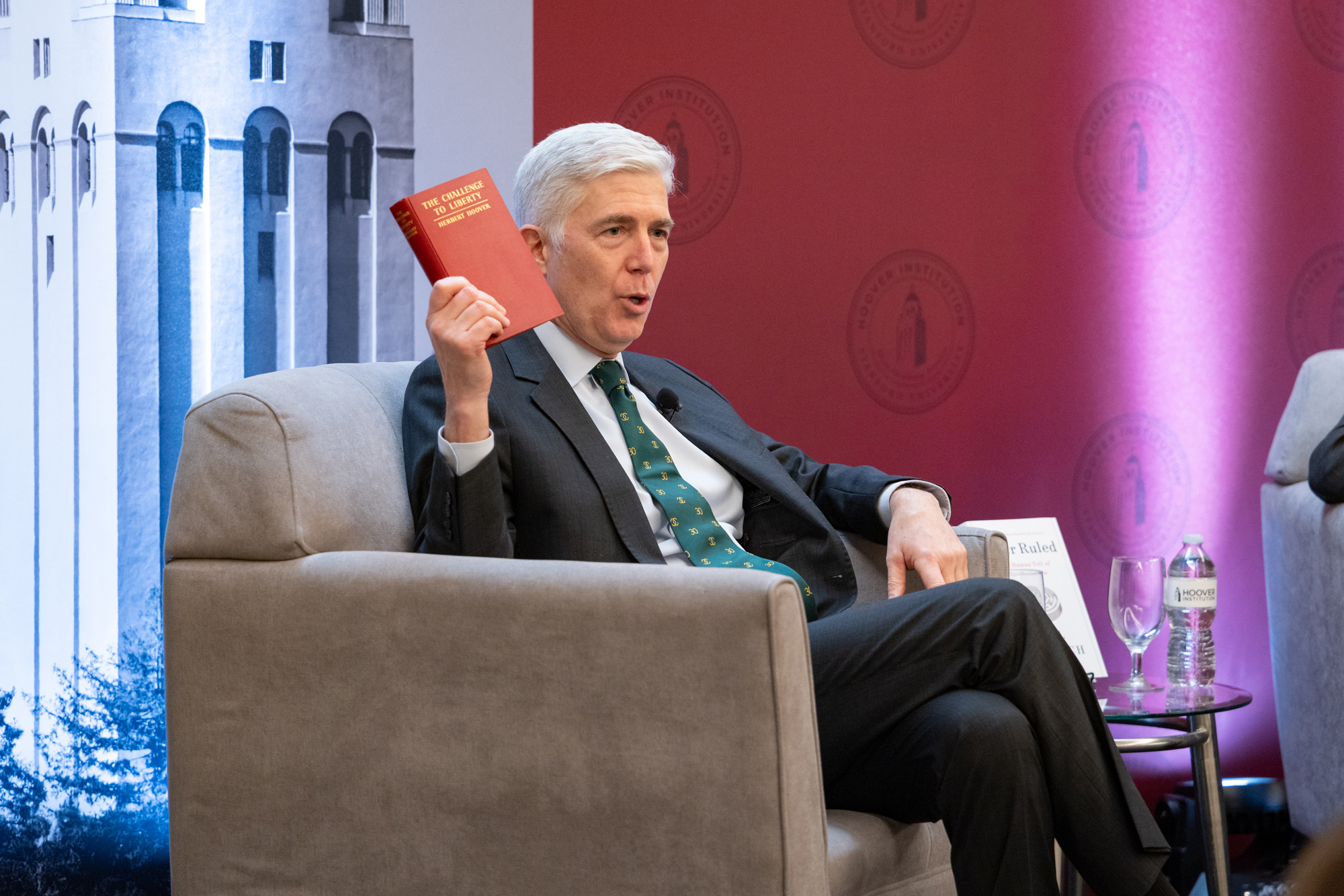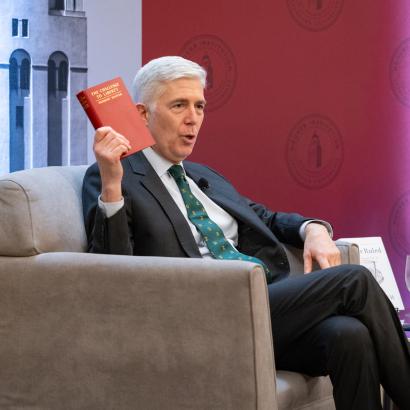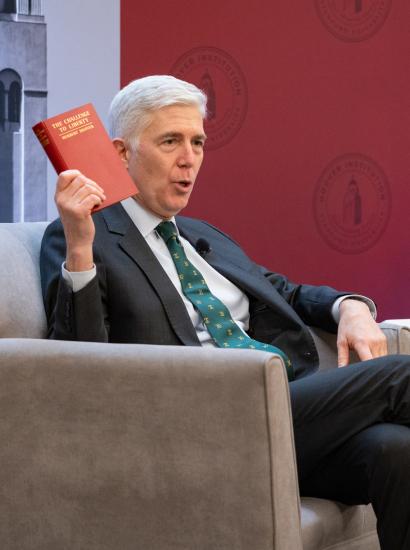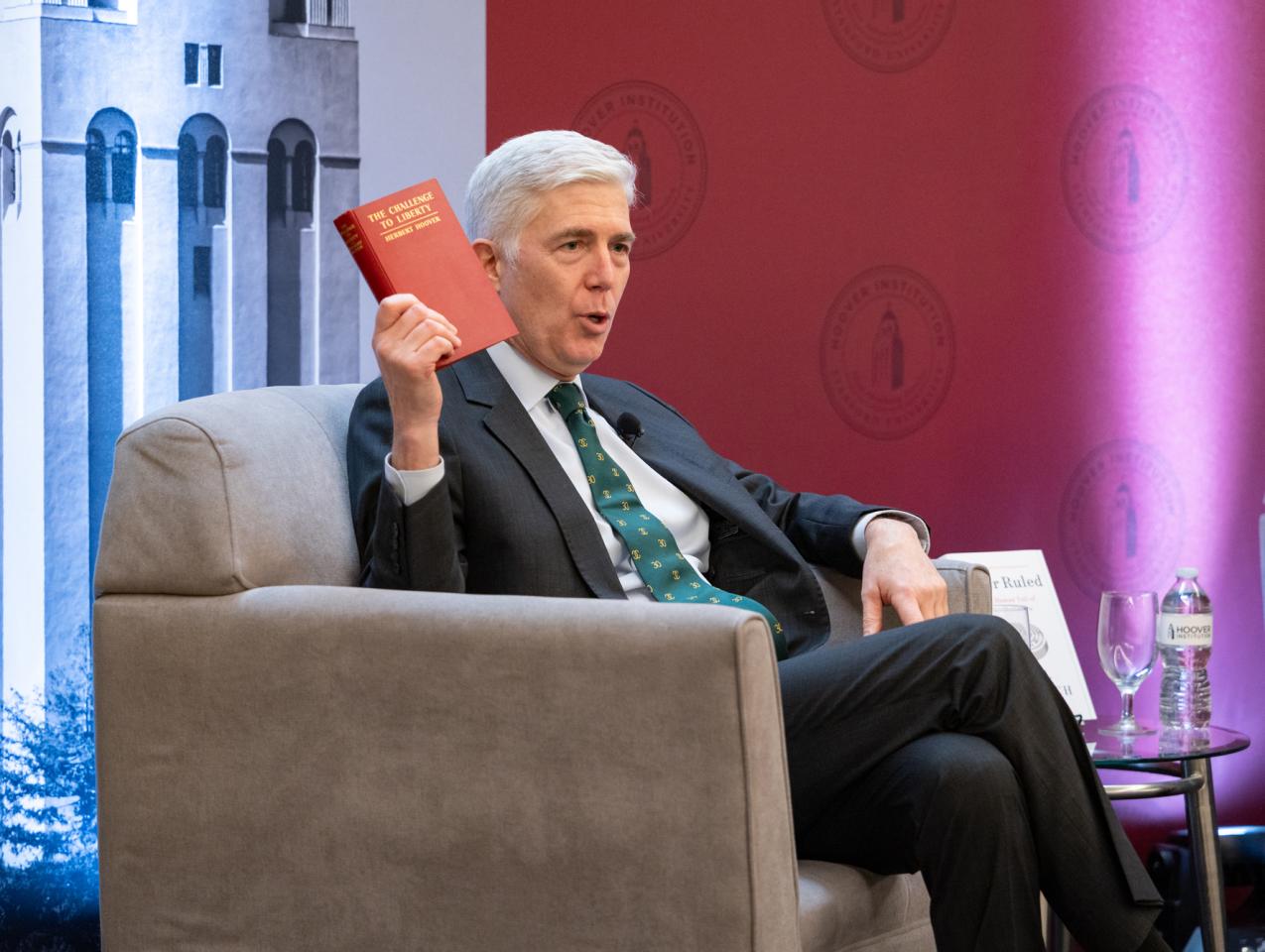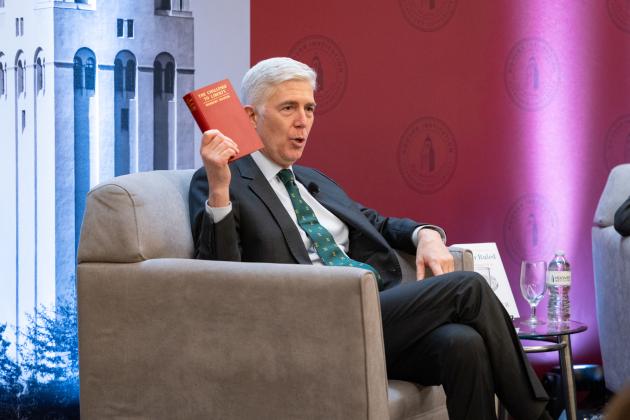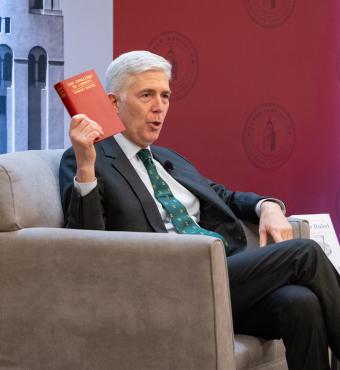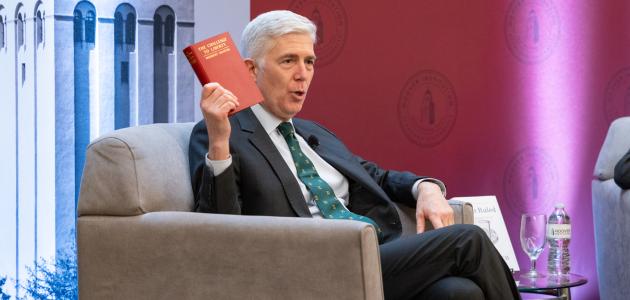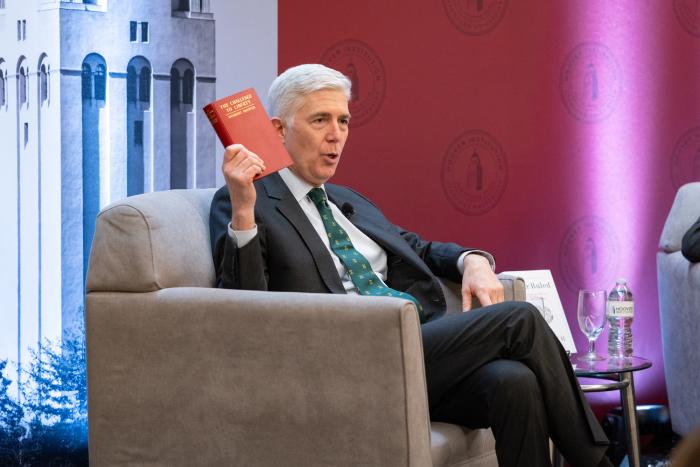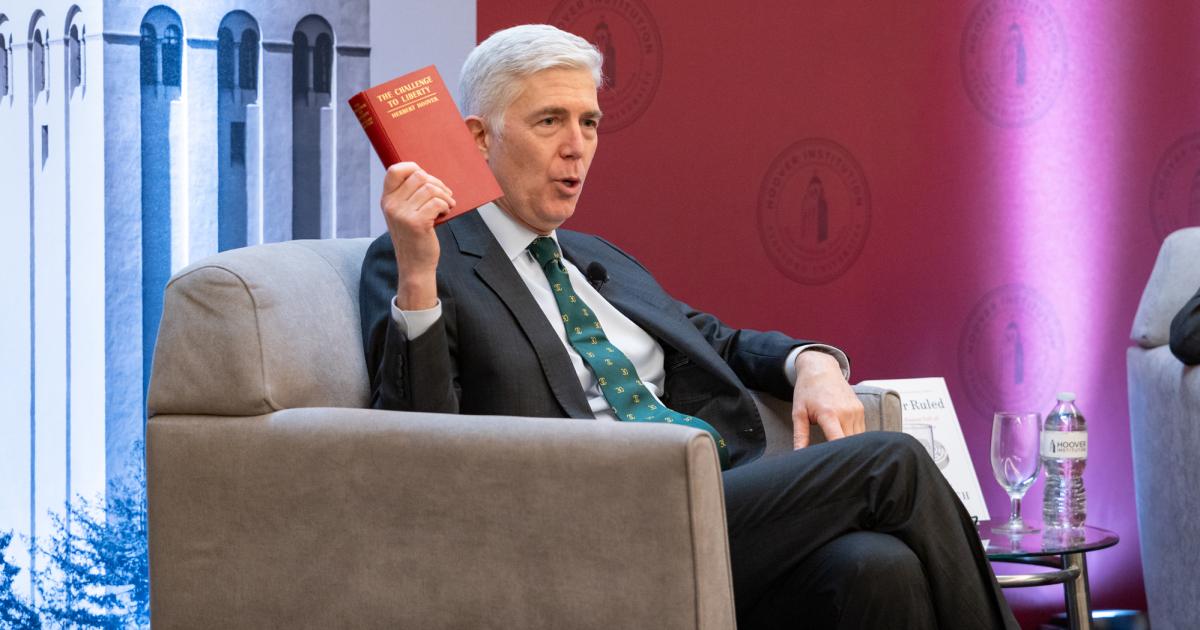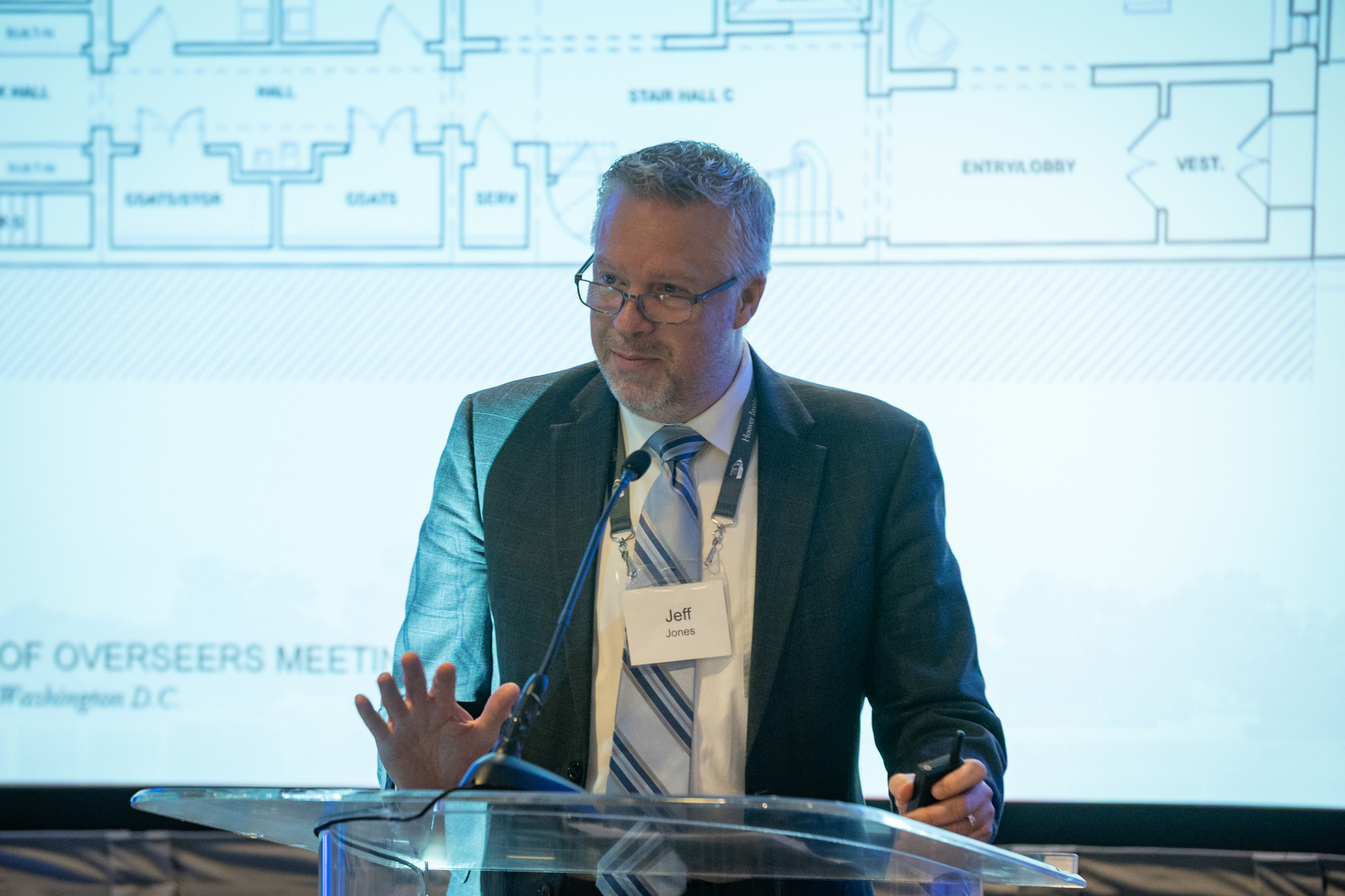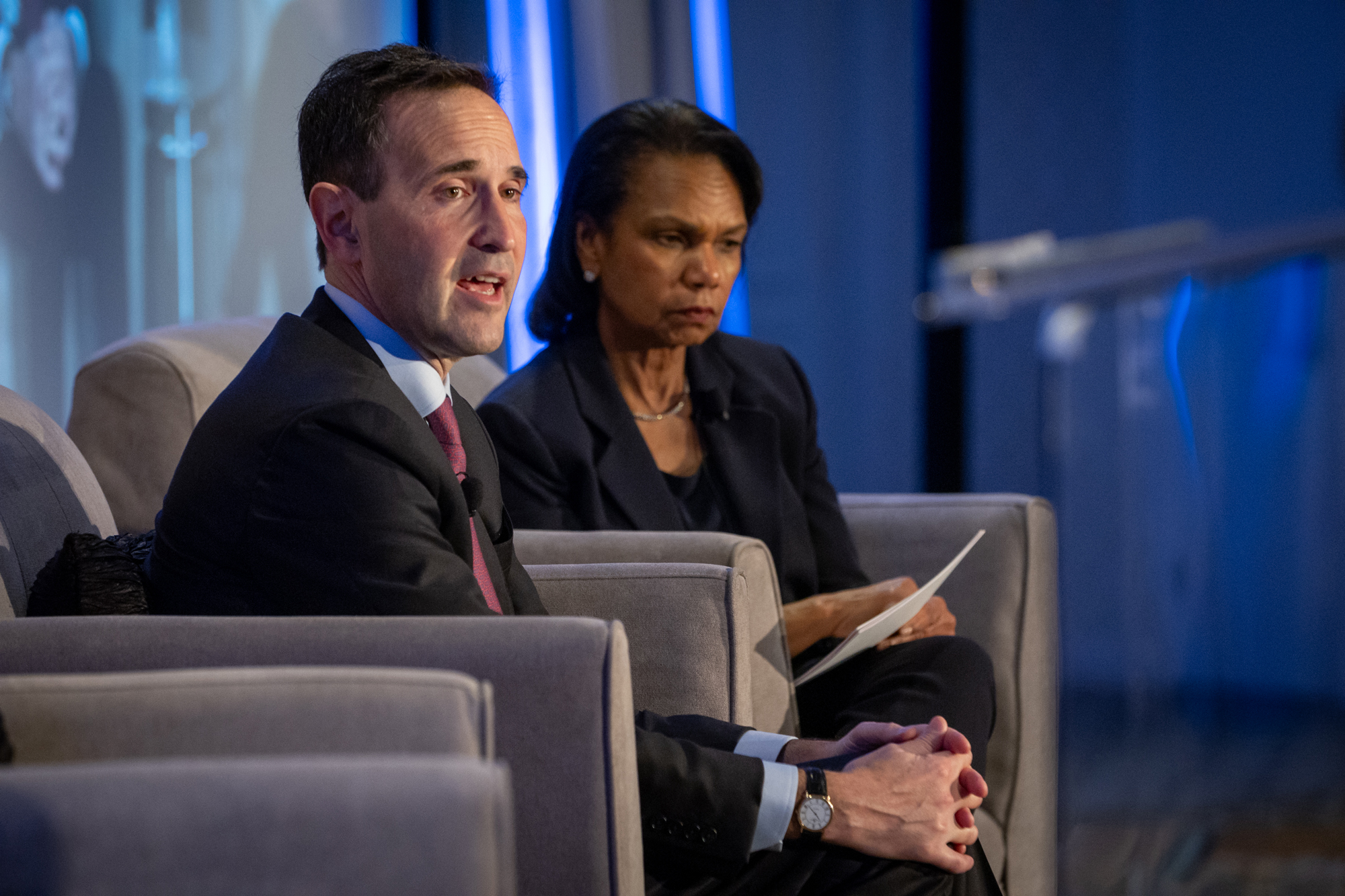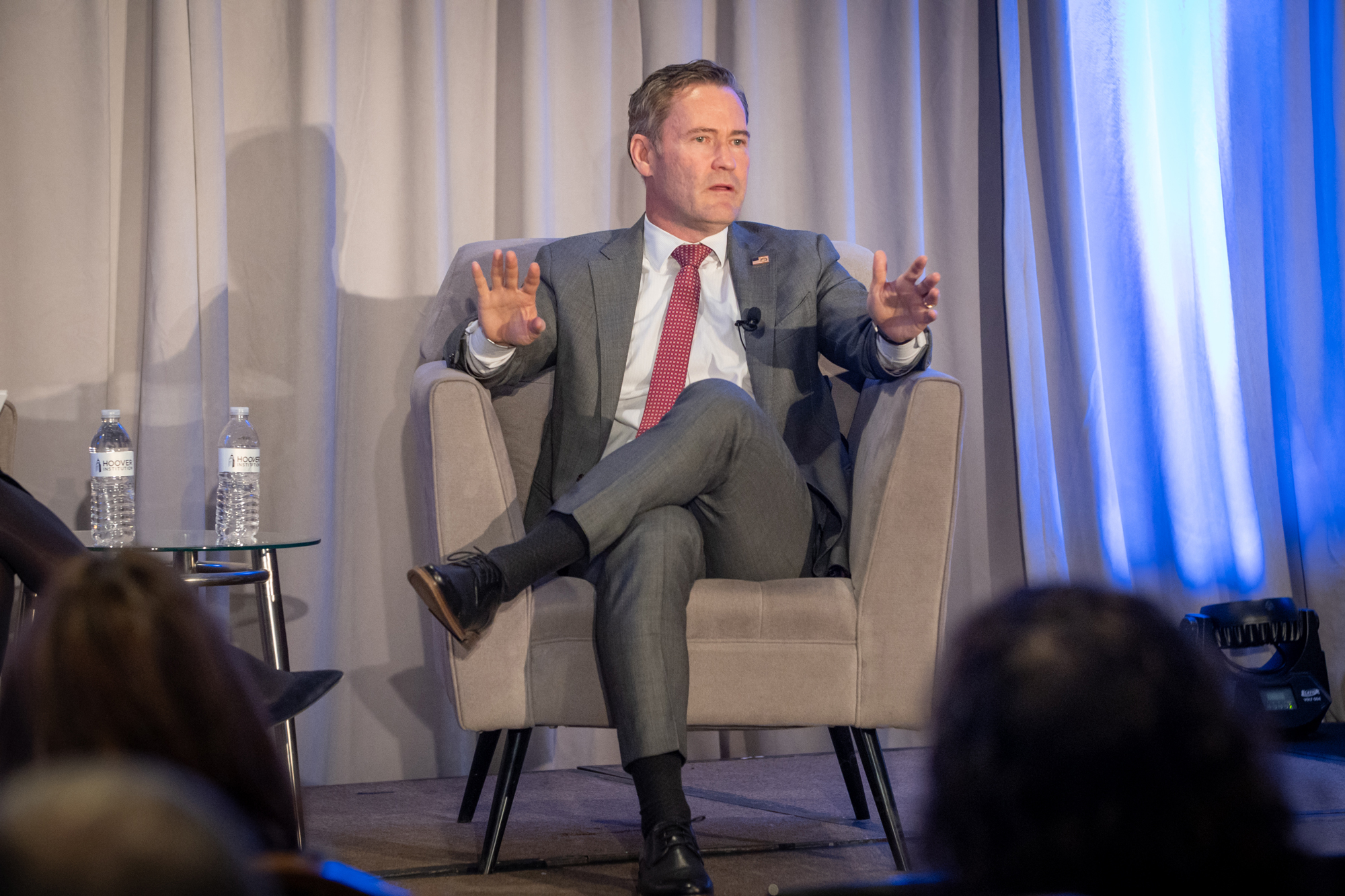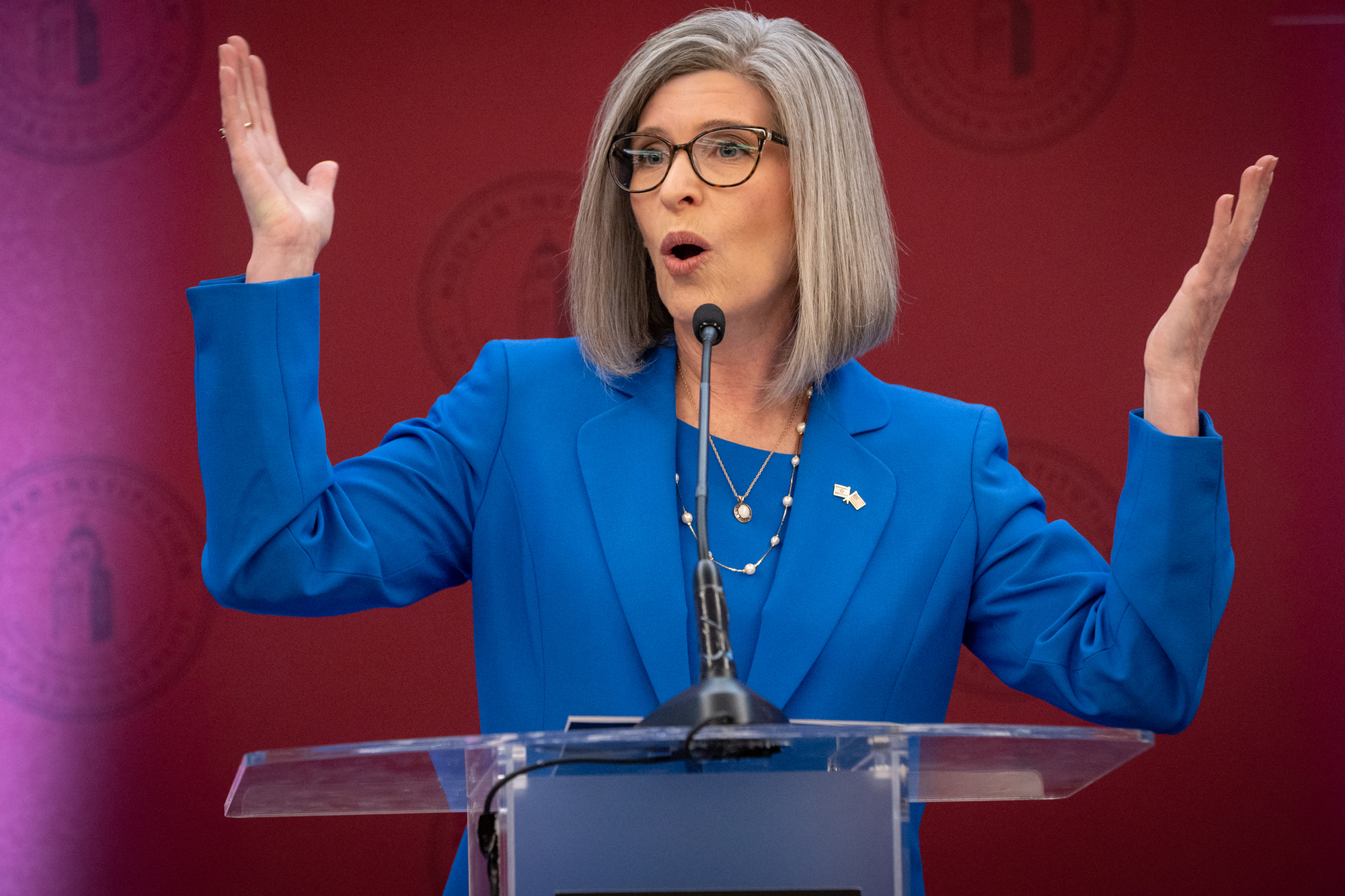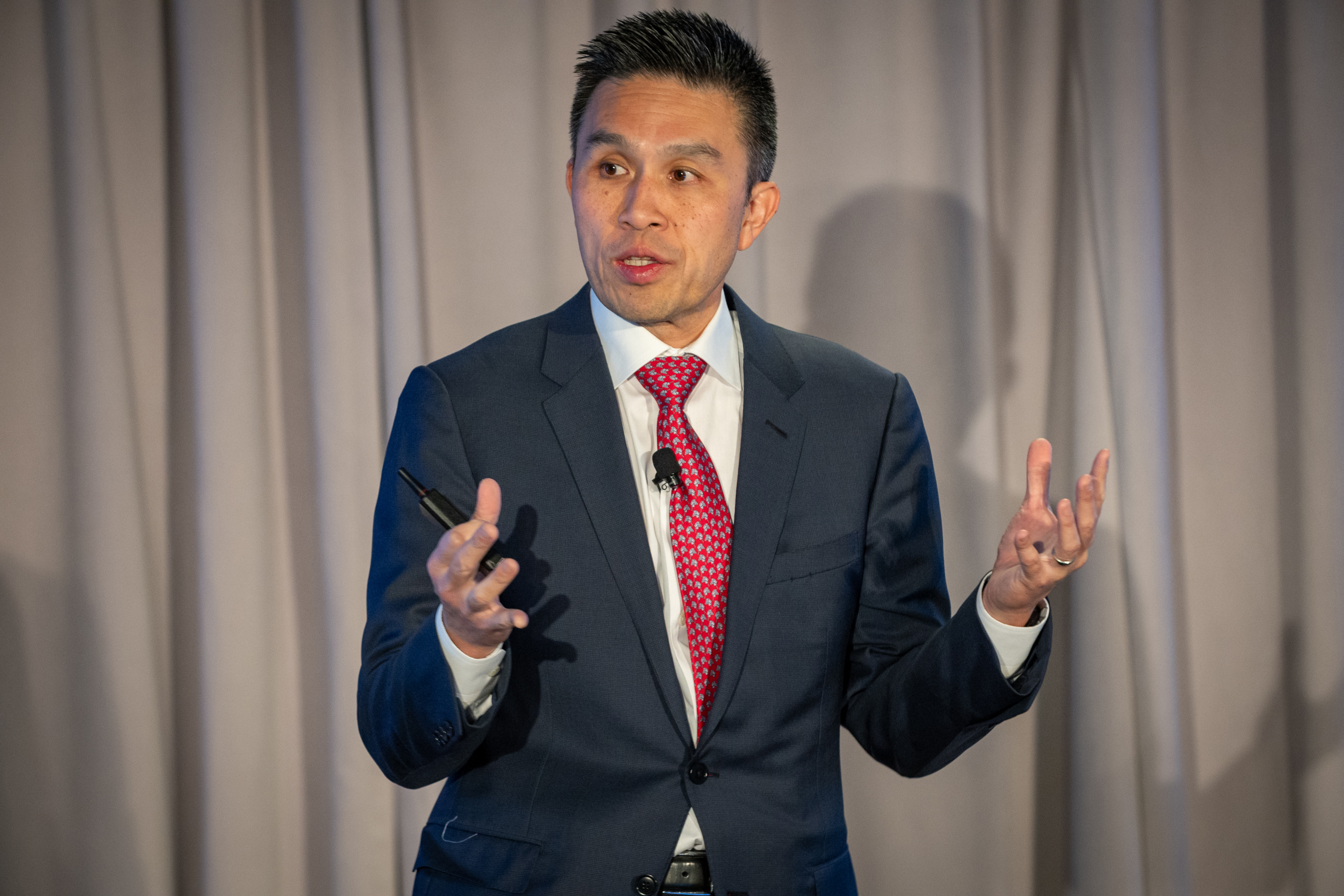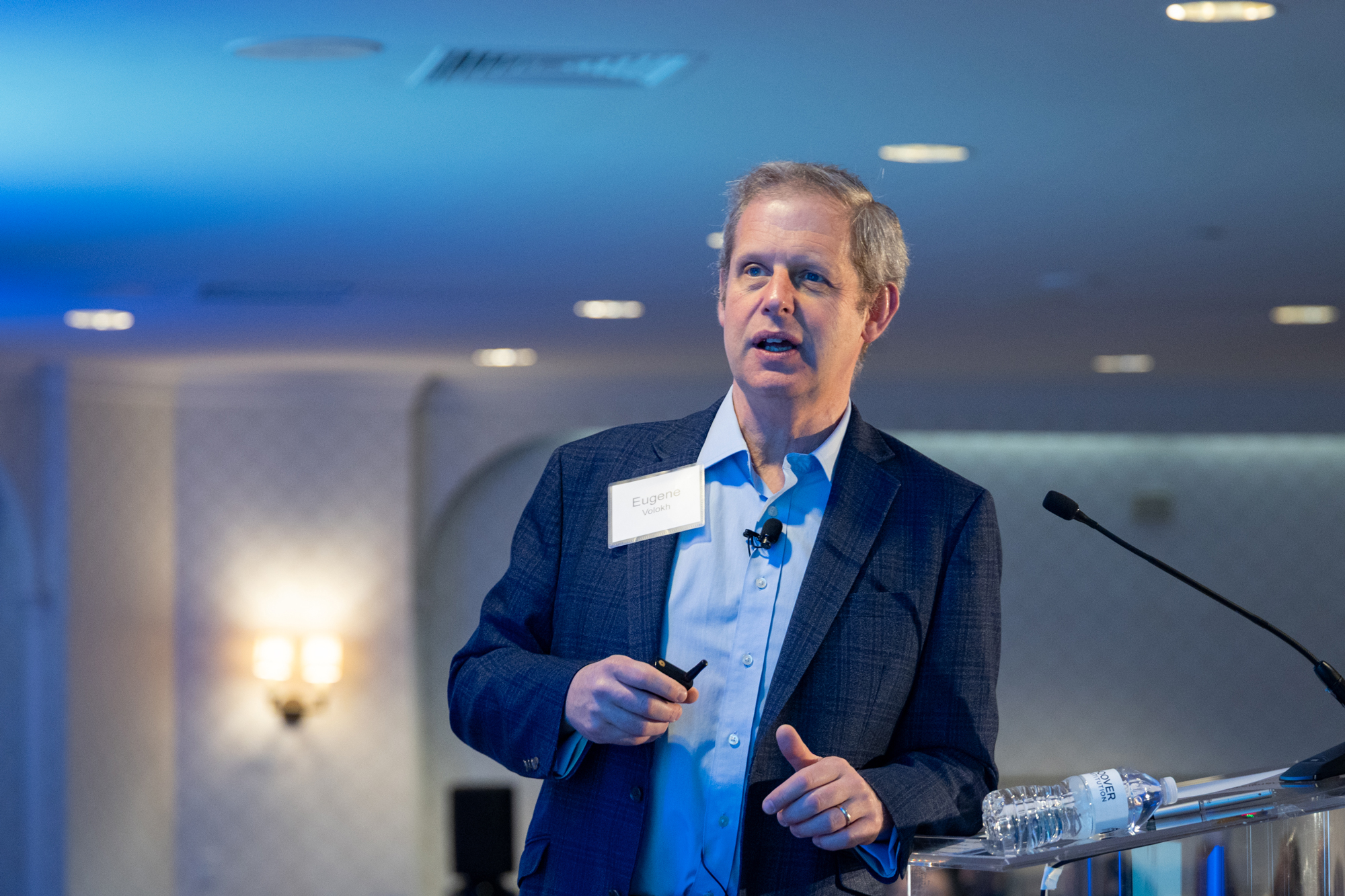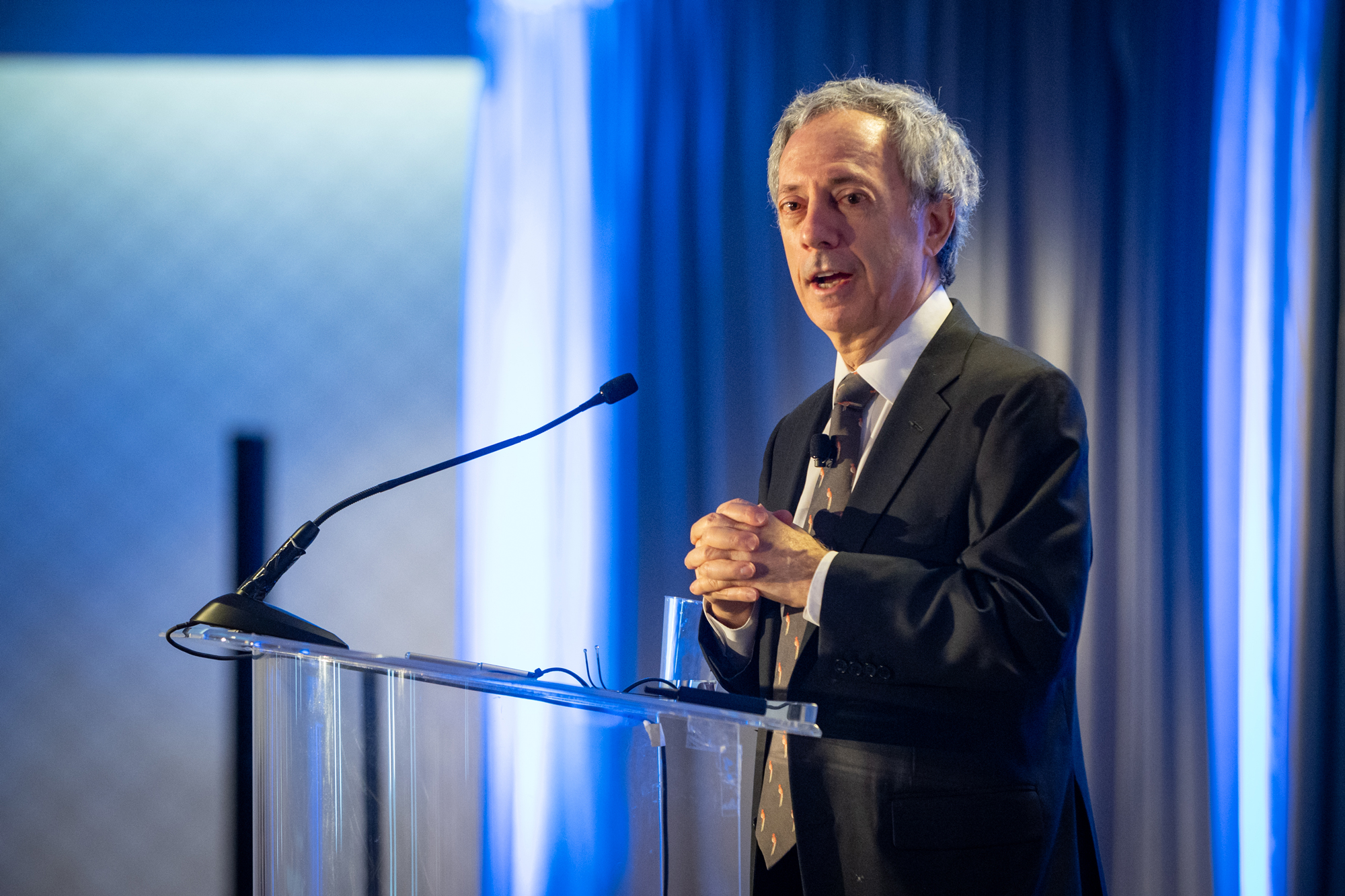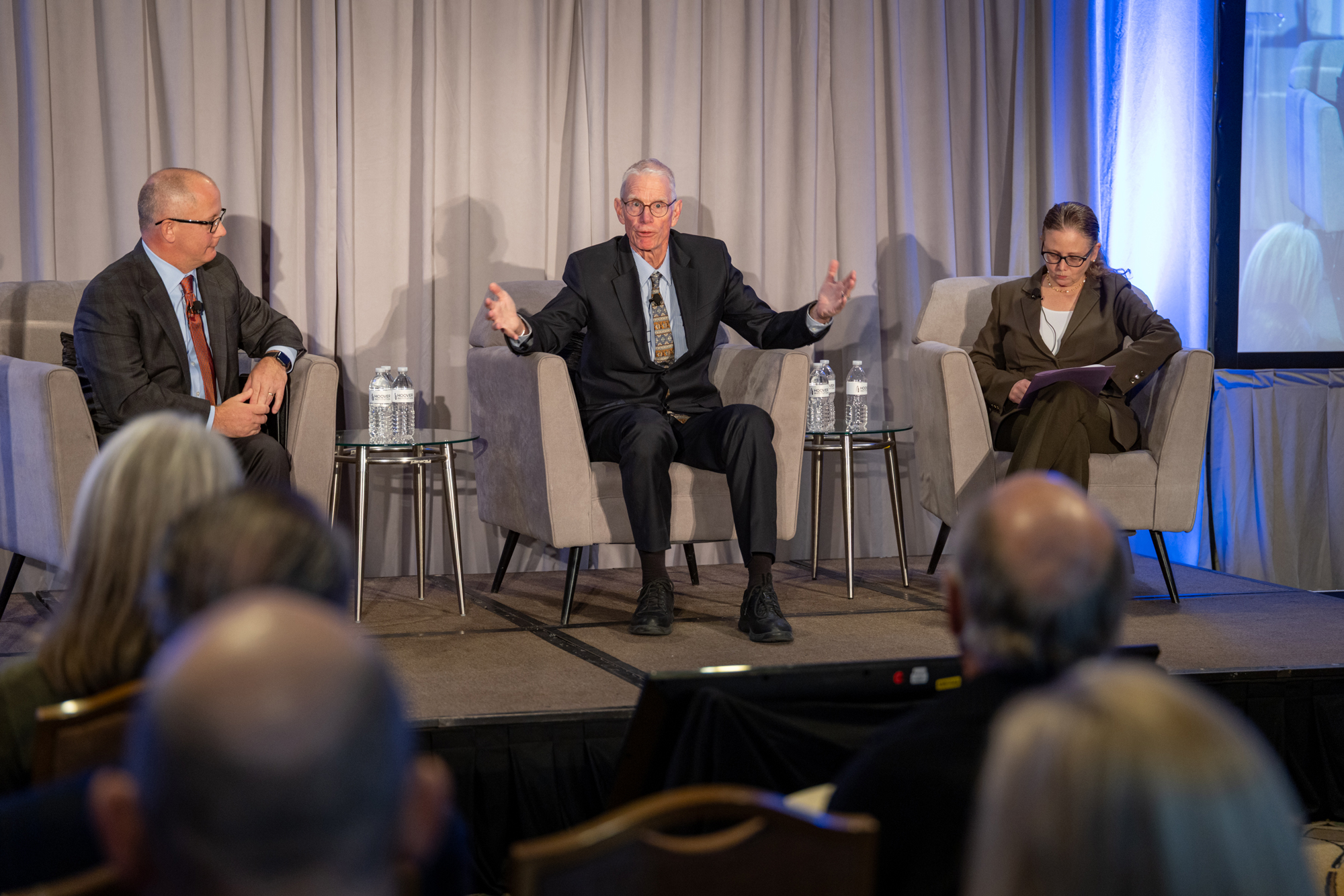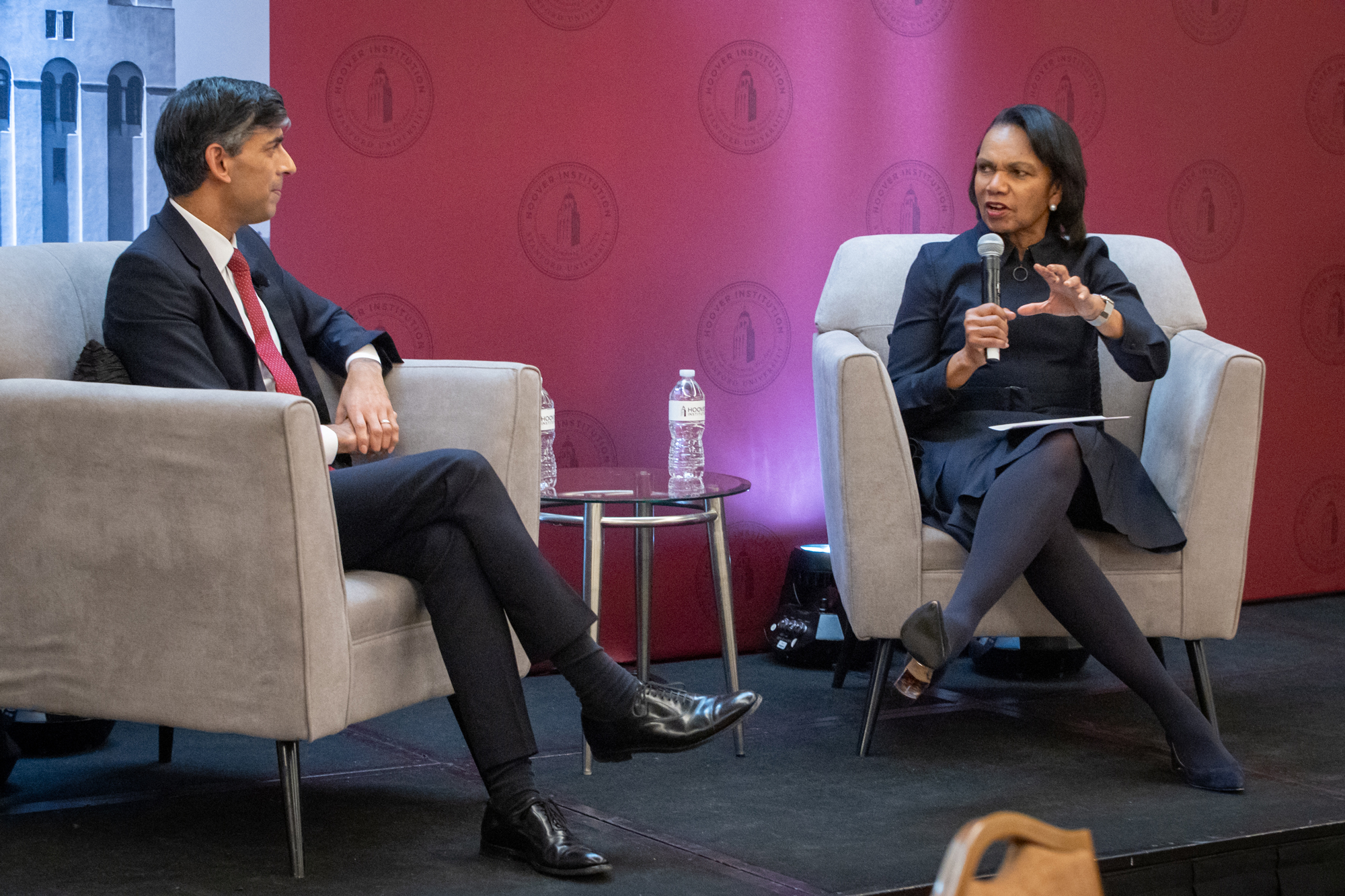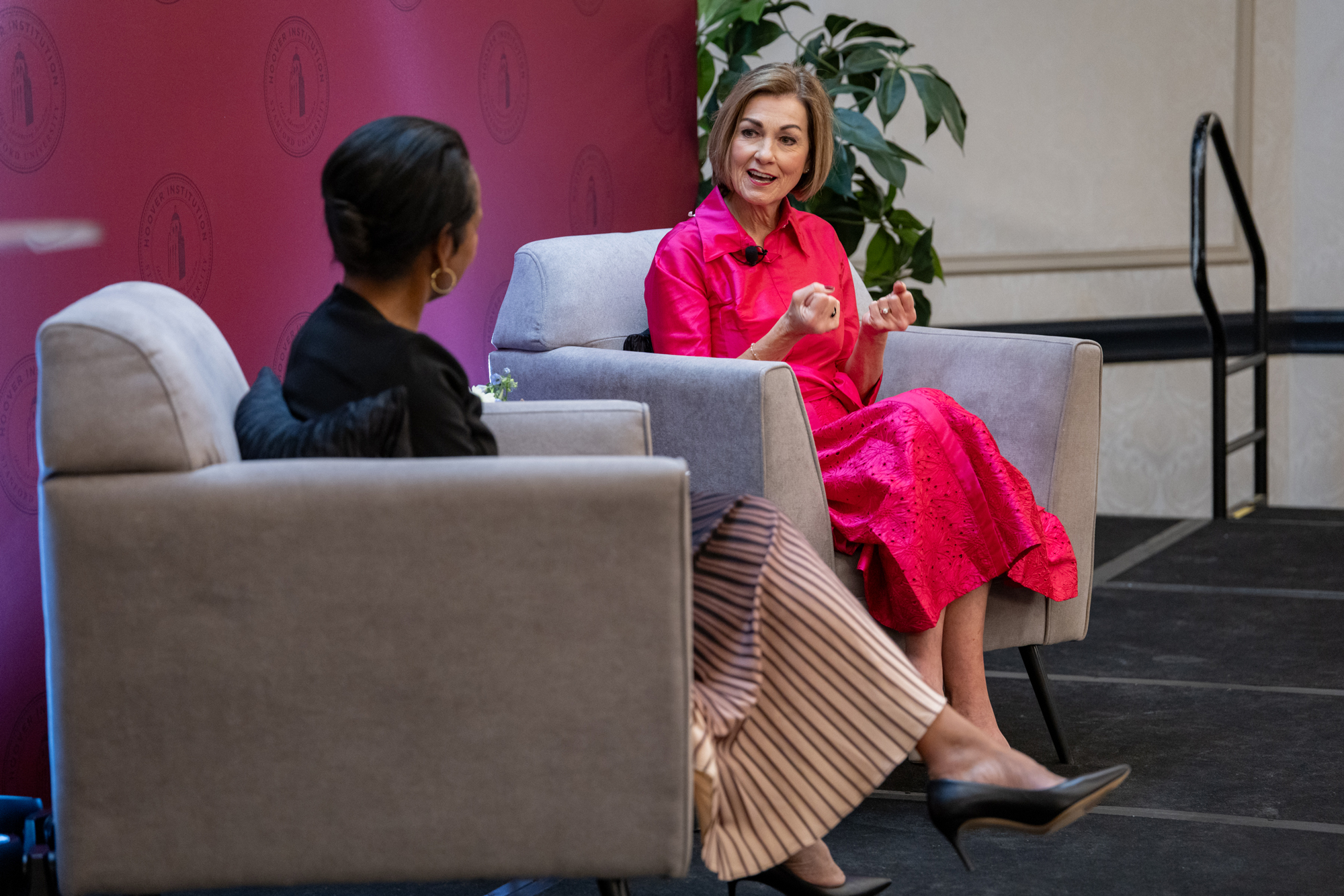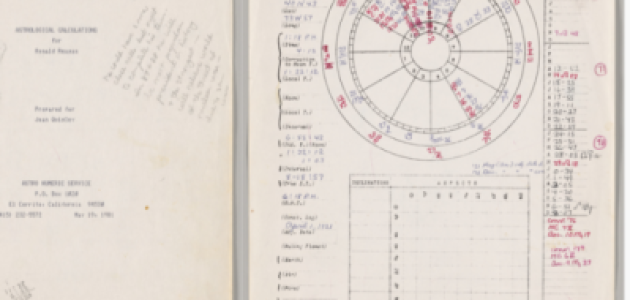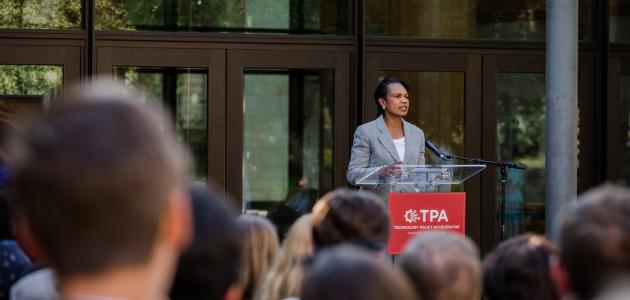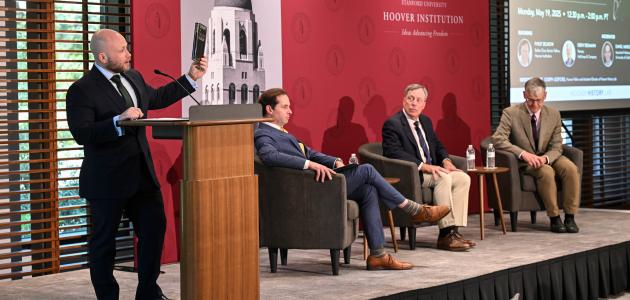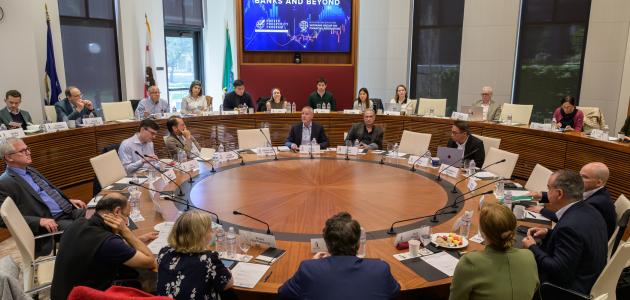Hoover Institution (Washington, DC) — Leading voices in all three branches of the US government gathered with the Hoover Institution’s scholars and supporters for its annual Winter Board of Overseers Meeting in Washington, DC, February 24–26.
Dozens of Hoover’s overseers heard from US Supreme Court Justice Neil Gorsuch, Iowa Senator Joni Ernst, White House National Security Advisor Mike Waltz, and Stanford President Jonathan Levin, as well as former UK Prime Minister Rishi Sunak, now a Hoover Institution distinguished visiting fellow.
Attendees also heard about the Hoover Institution’s new property in Washington, DC, which will be renovated into an office and conference space over the next few years.
The special guests at the meeting gave insight into the current policy priorities in Washington.
Speaking with Senior Fellow Eugene Volokh, US Supreme Court Justice Neil Gorsuch shared examples from his book, Over Ruled – The Human Toll of Too Much Law, which highlights how ordinary Americans face daunting challenges navigating the legal system. He cited a case involving the Sarbanes-Oxley Act being applied against a fisherman and the conditions imposed on the Key West home of Ernest Hemingway, which houses feral cats, in violation of federal regulations.
Iowa Senator Joni Ernst discussed how messaging from the Trump administration is motivating European allies to increase their defense spending, and how current efforts have empowered lawmakers with the information necessary to make informed domestic spending cuts.
White House National Security Advisor Mike Waltz provided an overview of global security issues, including conflicts in Ukraine and Gaza and the challenges posed by China and Iran.
In a discussion about healthcare policy, Fellow in American Public Policy Studies Lanhee J. Chen emphasized the need for Republicans to evolve their reform proposals beyond attempts to repeal the Affordable Care Act, as total repeal would now be extremely disruptive and unpopular. He emphasized the importance of responsible fiscal policy in ensuring sustainable public spending on healthcare.
Volokh addressed the extent to which the First Amendment protects the speech rights of foreigners in the United States, discussing contemporary issues such as the ownership of social media applications like TikTok and foreign contributions to political campaigns.
Former UK Prime Minister Rishi Sunak, now a distinguished visiting fellow at the Hoover Institution, spoke of his time as prime minister, described the role of the UK and the EU in underpinning American security, and discussed how Russia’s war in Ukraine might come to an end.
In a conversation with Stanford President Jonathan Levin, Hoover Institution Director Condoleezza Rice underscored the vital role of universities as foundational institutions that facilitate the free exchange of ideas and educate individuals on the principles of freedom and democracy in America.
Additionally, Senior Fellow Peter Berkowitz discussed the complexities of Gaza's reconstruction, proposing a strategy that involves the leadership of Middle Eastern allies while ensuring that Israel retains security control over Gaza's boundaries.
Senior Fellow Brandice Canes-Wrone, Director of Hoover’s Center for Revitalizing Institutions (RAI), along with RAI Assistant Director Tom Schnaubelt and Senior Fellow Josiah Ober, briefed overseers on RAI’s recent activities. They highlighted efforts such as the Stanford Civics Initiative, aimed at expanding civics education for undergraduates, and the Alliance for Civics in the Academy, designed to promote civic dialogue nationwide.
Iowa Governor Kim Reynolds spoke to attendees about the challenges of governing, federalism, and her stance on education.







